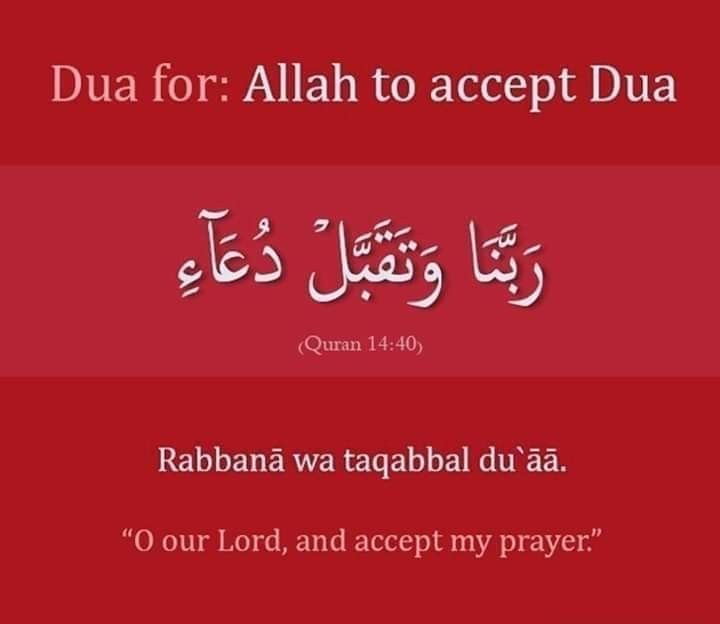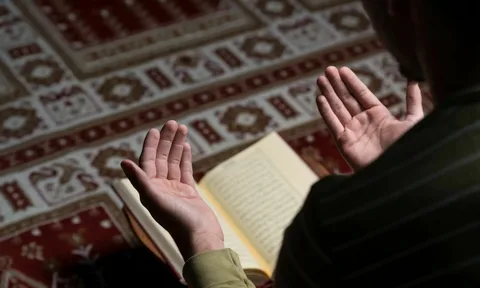The Virtue of Dua in Islam
Dua in islam is considered the weapon of the believer and a means to draw closer to Allah. Unlike ritual prayers that follow prescribed formats, dua is personal, adaptable to every circumstance, and open at all times. Allah promises in the Quran:
“And your Lord says, ‘Call upon Me; I will respond to you.’” (Quran 40:60)
The Prophet Muhammad (peace be upon him) also affirmed:
“Dua is worship.” (Tirmidhi)
This clear emphasis on dua’s centrality encourages Muslims to seek prayer acceptance earnestly—whether for solving daily struggles, seeking approval in major decisions, or yearning for spiritual elevation.
Why Seek Dua for Acceptance and Approval?

Muslims seek Allah’s response for various needs: forgiveness, guidance, healing, protection, provision, marriage, success in exams, business, and critical life events. They also ask for Allah’s approval, or rida, in their actions—so their work, relationships, and daily choices gain divine pleasure.
Duas for acceptance bridge the gap between hope and outcome; those for approval draw the believer closer to paradise, since attaining Allah’s rida is the highest goal.
Etiquettes That Help Dua Be Accepted
The Prophet (peace be upon him) taught etiquettes that make duas more likely to be accepted:
-
Beginning with praise of Allah and salawat upon the Prophet.
-
Facing the Qiblah.
-
Raising the hands.
-
Expressing humility.
-
Making dua persistently and not hastily.
-
Using Allah’s beautiful names.
-
Seeking forgiveness for any shortcomings.
-
Repeating the supplication three times.
Moreover, making dua at blessed times—such as in sujood (prostration), before breaking the fast, during the last third of the night, and between adhan and iqamah—increases its chances of acceptance.
Duas For Prayer Acceptance and Seeking Approval
Duas for Prayer Acceptance and Seeking Approval reflect a believer’s deep connection with Allah. They embody hope, faith, and the desire for divine guidance.
1. Dua Asking Allah to Accept Good Deeds
“Our Lord, accept [this] from us. Indeed, You are the Hearing, the Knowing.”
(Quran 2:127)
This dua, which Prophet Ibrahim and Ismail recited while building the Kaaba, is commonly used after any act of worship, asking Allah to accept prayers, fasts, charity, and efforts.
2. Dua for Righteous Actions and Approval
“O Allah, accept it from me and grant me Your approval, for You are the Most Merciful.”
(General wording inspired by prophetic duas)
Adding “wa ridaka”—“and Your pleasure”—to any dua seeks not just worldly outcomes but Allah’s satisfaction, aligning intentions with ultimate spiritual goals.
3. Dua to Make Supplications Heard
“My Lord, I am in need of whatever good You send down to me.”
(Quran 28:24)
This dua, recited by Prophet Musa, expresses humility and openness for Allah’s help in all matters. It is ideal when one feels vulnerable or desperately needs a prayer answered.
4. Dua for Mercy, Guidance, and Acceptance
“Our Lord, do not let our hearts deviate after You have guided us, and grant us mercy from Yourself. You are the Bestower.”
(Quran 3:8)
This dua focuses both on acceptance and steadfastness—asking Allah for guidance and approval in all affairs.
5. Dua for Good in This Life and the Next
“Our Lord, give us good in this world and good in the Hereafter and protect us from the punishment of the Fire.”
(Quran 2:201)
Recited especially in the last moments of salah, this comprehensive dua captures the essence of balancing worldly needs, spiritual approval, and eternal salvation.
Duas for Seeking Approval in Major Decisions
Many Muslims face crossroads in life: jobs, marriages, partnerships, relocations. They want not only the best outcomes but Allah’s approval—so they seek His guidance and blessing.
Istikhara: Dua for Divine Approval
Istikhara is the dua specifically prescribed for seeking Allah’s guidance and approval in major decisions.
“O Allah, I ask You for the good of this matter, its outcome, and what comes after it. If it is good for me in my religion, life, and outcome, ordain it for me and facilitate it. If it is harmful, turn it away and turn me away from it, and ordain good wherever it may be.”
Praying istikhara with sincerity helps maintain peace and contentment, believing that whatever unfolds is by Allah’s wisdom.
Practical Steps for Making Effective Dua
-
Cleanse the heart: Seek forgiveness, remove grudges, and increase humility.
-
Time your supplication: The last third of the night, after obligatory prayers, during rain, and on Friday are special times.
-
Persevere: Continuous dua shows sincerity and reliance on Allah.
-
Avoid prohibited means: Ensure the request aligns with Islamic teachings.
-
Trust the outcome: Know that Allah responds in one of three ways—immediate answer, reward in the Hereafter, or deflecting a calamity.
Common Situations for These Duas
-
Parents asking Allah to bless and prosper their children.
-
Students seeking exam success.
-
Traders and entrepreneurs requesting prosperity and guidance in business.
-
Couples praying for harmony, love, and approval in relationships.
-
Muslims seeking forgiveness and firm faith.
-
Anyone asking for health, relief from worry, and protection against harm.
How to Add Sincerity to Duas?
The inner state matters far more than outer eloquence. To truly seek acceptance:
-
Focus the heart on Allah alone.
-
Recall Allah’s mercy, majesty, and nearness.
-
Feel deep need and vulnerability.
-
Be persistent and grateful.
-
Never despair—answers may be delayed but are never neglected.
Encouragement and Hope in Making Duas
Allah’s acceptance is never limited. The Prophet Muhammad (peace be upon him) said:
“Your Lord is modest and generous. He is ashamed when His servant raises his hands to Him (in supplication) and He returns them empty.” (Ahmad, Abu Dawood, Tirmidhi)
Holding hope, patience, and continued effort helps believers grow spiritually, turning each dua—answered or delayed—into a source of goodness and reward.
FAQs
What are the best times to make dua for acceptance?
Favorable times include the last third of the night, after obligatory prayers, during rain, when fasting, between adhan and iqamah, and in sujood.
Can duas change destiny or outcomes?
Duas are powerful; with Allah’s permission, they can alter outcomes, ward off harm, and bring benefit, especially when made sincerely and persistently.
How can I know if my dua is accepted?
Allah’s response takes many forms: immediate answer, delay for wisdom, or substituting a greater good. Acceptance may show in ease, guidance, or opportunity.
Is there a specific dua for seeking approval in decisions?
The Istikhara dua is prescribed for major decisions, asking Allah for goodness, facilitation, and turning away from harm; general duas for guidance and approval are also beneficial.
What should I avoid when seeking prayer acceptance?
Ensure the dua does not involve injustice, prohibited acts, or that which contradicts Islamic principles. Avoid doubt, impatience, and ingratitude; maintain hope and trust in Allah.
Conclusion
Duas remain a central form of connection, comfort, and strength for Muslims, especially in seeking prayer acceptance and divine approval. By learning the prophetic supplications, adopting correct etiquettes, and maintaining hope and humility, believers transform their prayers into deeply meaningful experiences. Whether life’s trials or joys, every moment becomes richer through invoking Allah’s mercy, guidance, and pleasure. Trusting in His response—immediate or delayed—brings the serenity and resilience needed to face the world.


